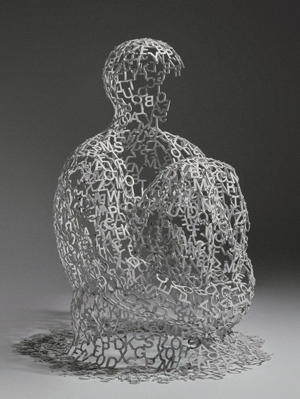There is no way out of a spiritual battle
There is no way you can avoid taking sides
In the years since Diane di Prima wrote those words in a poem called “Rant,” the United States has become a rantocracy of screaming politicians, pundits, and talk radio hosts. They shout, even when they whisper. Some of us try to make ourselves heard above the shouting, and that raises Buddhist questions: Can a person maintain equanimity and stay in the political debate? And what about the precept of right speech? It forbids lying, of course. But it also means no harsh words, rumor-mongering, or frivolous talk.
In today’s political dialogue, what’s left?
I started writing about politics on my own blog in November 2004. The election results had thrown millions of Americans into deep depression. I told myself my only goal was to help, to cheer up the discouraged and persuade the undecided. If nothing else, the act of trying to serve others might bring some longed-for serenity into my life.

In the United States of 2004, even this small act felt important. News outlets had begun the Bush presidency by refusing to broadcast images of massive demonstrations against his inauguration. Now the country found itself in the grip of an unprecedented media blackout of opposing voices and unpopular facts. After the invasion of Iraq, war opponents were rarely seen on the mainstream media. When they were, they were routinely derided as “un-American” or “objectively pro-terrorist.”
A few bloggers began to offer different perspectives. They were punchy, aggressive, colorful, informative. Eventually, blogs began drawing millions of readers hungry for dissenting voices. They began to show their political power. A well-known blogger asked, “Is blogging the new punk?” I felt right at home. My prose was sometimes awkward at first—blogs have their own style—but I slowly began to find an audience, and was asked to write for Arianna Huffington’s Huffington Post, one of the Internet’s best-known sites. Within a year of adopting my new vocation I was appearing on television and radio, being called a slanderer and a hack and throwing my share of punches in return. Peace of mind was more elusive than ever.
The hate mail became more common. Surprisingly, some of the most vehement and personal insults came from atheists. Although I don’t believe in an anthropomorphic deity, I was critical of Sam Harris and other New Atheists for what I took as hostility toward Muslims, unproven assumptions about the power of atheism to prevent social ills, and—in Harris’s case—for endorsing the practice of government torture. This elicited more than one suggestion that I enjoyed engaging in sexual practices with Jesus Christ.
But it wasn’t the hate mail that assaulted my serenity the most. The ongoing cycle of poverty, global warming, and endless violence in Iraq weighed heavily. “The only war that matters is the war against the imagination,” wrote Diane di Prima. “All other wars are subsumed in it.” Political leaders of both parties seemed to lack the imagination to affect real change. And the War Against the Imagination, relentless and one-sided, raged in the media.
I stuck to my principles at first. I tried raising people’s morale with humor. I compiled statistics showing that antiwar sentiment had more support than most journalists acknowledged. Maybe it was Buddhism that reminded me in those days: everything passes in time, even defeat itself. I tried to remind others that the tides of history always turn, and turn again.
But the onslaught continued. Joe Klein was a typical example. Although he was billed as Time magazine’s “liberal” columnist, he routinely made sweeping derogatory comments about progressive Americans. When he said that that there is a “hate America” wing of the Democratic Party, I lost my temper. Klein hadn’t always been this way. He had been a decent guy and had written some good books. We had mutual friends. But when I wrote about him I threatened to respond physically to his insults. I was joking, but the feeling was real. A friend of his laughed and said, “You could take him in a fight, easy.”
My Klein piece was meant to defend those he unfairly maligned, but I didn’t like the emotions I was feeling. Could the Buddhist practice I’d abandoned years before help me? I sought out the advice of Dharmavidya David Brazier, a Buddhist teacher in the Pure Land Amida Order. He is no stranger to controversy, political and otherwise. Dharmavidya remarked that “in any set of ethical principles there are conflicts. You have to balance priorities. Putting ‘right speech’ at the head of your priorities renders you politically impotent.”
He added, “There are many occasions when honesty is a much higher priority than niceness.”
One night a black car came and took me to a small television studio on the second floor of a shuttered office building. Once the makeup person was finished with her work, I was led into a tiny room with a camera and a television monitor, and left there without direction or instructions. Conservative television pundit Tucker Carlson spoke to me over an intercom during a commercial break. “We’re going live in two minutes,” he said. “So tell me, why did you decide to write about Vice President Cheney’s hunting accident, and to call it ‘Cheney’s Chappaquiddick’?”
Carlson knew that the Vice President had accidentally shot a hunting companion, avoided the authorities overnight, then given misleading statements to the authorities. So my answer was brief. “I disagreed with you conservatives about the impeachment of President Clinton,” I said, “but you were right about one thing: character matters.” Once we went live he tried to surprise me with some new “facts” (unproven to this day) about the case. Still, it seemed to go well and I enjoyed it. The high-pressure sparring was an exercise in mental clarity, and I was able to fix my attention on the glow of the red “On the Air” light. But the next day Carlson used his MSNBC blog—together with an unflattering image of me—to distort my comments about the hunting accident. That was my introduction to the mainstream media.
While I don’t claim to be an investigative journalist, I did manage to break two or three news stories that year that got me some more national attention. One involved a new presidential directive that said the U.S. could act unilaterally to protect its military interests in space. I thought this might lead to war, and I said so. The Washington Post, whose media critic had once found fault with my coverage of another newspaper, ran the story a week later and it began receiving international attention. Soon Al Gore and others were condemning the Administration’s policy. Russian President Vladimir Putin issued an angry denunciation condemning what he called “unilateral, illegitimate actions.” Putin said U.S. leaders were “seeking to untie their hands in order to take weapons to outer space, including nuclear weapons.” And he threatened to retaliate.
An MSNBC analyst said that the story was “overblown.” He argued that previous space directives under President Clinton weren’t very different, and that reports like mine—rather than the Administration’s actions—could trigger a new Cold War. Was he right? In some small way, could I have helped to increase the likelihood of war? It doesn’t get worse than that for karma or conscience, but I felt certain he was wrong and wrote a detailed rebuttal. Even right-wing commentators (including the leader of a think tank funded by Boeing) agreed that there was a new Administration effort to militarize space.
“Me, help start World War III?” I wrote jokingly. “I hate when that happens.”
Still, it made me pause. I saw that I carried more responsibility than I had realized. Buddhism teaches that our actions reverberate in unknown ways, but this was more than I had bargained for.
Not long afterward, I took a break from politics to explore the story of JonBenet Ramsey’s “beauty pageant” career and her murder at age five. The first comment attached to the piece was short and sharp: “Who cares? Write about Darfur!”
I was furious. I hadn’t written a gossip piece. My point was that we—and our children—were being used to fuel an economic engine. We were turning young girls into commodities, encouraging the greed and yearning of adults, and passing our soul-killing cravings to new generations. Now this sanctimonious commenter was calling me—me!—trivial? I wrote a scathing response. “I have written about Darfur,” it began. “Many times, in fact. What have you done?”
But I took a deep breath before I posted it. Guard against mental irritation, say the sutras. Be restrained in mind. I erased my words, but the unexpressed sentiments turned into a world-class headache. Why was I suddenly so sensitive to criticism? In the Dhammapada, the Buddha quotes a saying: “They disparage one who remains silent, they disparage one who talks a lot, they disparage one who talks in moderation.”
Criticism is inevitable. It’s how we handle it that counts. Perhaps I needed to practice a little harder.

In September 2006, I appeared on Sean Hannity’s Fox Radio show with Christian right leader Gary Bauer, to argue against anti-Islamic bigotry. Phoning in to the studio from my home, I began by saying that extremists exist among all people and that anti-Islamic fervor was being used by the right for political purposes. They asked me about a recent threat on the Pope’s life, where he had been told to convert to Islam or be murdered.
“We all abhor violence and terrorism in the name of religion,” I began, “whether it’s Muslims exhorting the Pope to convert to Islam, or Ann Coulter saying that we should kill their leaders and convert them to Christianity. That’s hateful speech, and all decent people oppose—”
In classic Fox style, Hannity cut me off. “Kind of like Howard Dean saying all Republicans are dark, evil . . . ”
“I’m sorry,” I answered, “you probably didn’t realize I wasn’t done yet.”
“I did realize you weren’t done,” he snapped. “I just wanted to know if you’re just a liberal hack who just likes to go after Republicans.”
I tried to remember the Buddha’s words: Let us remain free from hatred in the midst of people who hate. But my blood was boiling.
“See, this is what you guys do. You don’t let people finish—”
“I’ll let you finish when I want to let you finish.”
Do not say anything harsh, or what you have said will be said back to you. “Stop,” I said. “Let’s do something a little different. Let’s see if we can’t all agree.” Pause. “Maybe we can all agree that there is a very hateful, dangerous movement within Islam that needs to be stopped. Can we agree on that?”
Longer pause.
“The most effective way to do that . . . is to support moderate Muslims like the five hundred imams in Britain who signed a fatwa condemning terrorism—” “Whoa, whoa, whoa. Stop right there.” Hannity, an experienced radio performer, cut in to let his equally polished guest make an unrelated point. Soon Bauer was concluding: “People like your other guests are more interested in scoring cheap shots against the President than they are in facing the evil that confronts all of us.” I was given no chance to respond before the show suddenly ended. The audience of millions was gone in an instant. Standing in my kitchen, I became aware of a humming sound that seemed to come from a long way off. It was the dial tone from the phone in my hand.
I was left feeling angry and frustrated. It was two against one. I had been interrupted, silenced. Friends questioned why I appeared on Fox Radio in the first place, but I had thought I could say something meaningful. Vanity played a part, too. A lot of people listen to Sean Hannity.
When I told the story to Dharmavidya he said, “A crucial point is to try not to lose your cool.” How? “Take a time-out. And also recognize that this is the sort of creature we are. Picture the Buddha watching and smiling to himself, saying, ‘This is how these humans behave.’
“I think Western Buddhists need to recognize that we are imperfect beings,” he said. “In an awful lot of Buddhist groups everybody is pretending to be two millimeters off enlightened, but we’re not. Even Thich Nhat Hanh talks in one of his books about how somebody stood up and called him a coward when he was giving one of his talks in the U.S. during the Vietnam War. He said he was livid and had to leave the hall.”
“Hey, big fella!” the email read. “You need to do some more basic research! Ah, no, you don’t. Just break more wind and put it up as information.”
The New York Times reporter was enraged. I had slammed his latest article. His email said I had overlooked some basic points in his story, but I hadn’t. It was obvious that he had never read past my first paragraph.
The email was a major blunder for him, and potentially a major win for me. I was ethically free to print it, since he hadn’t asked that it be kept off the record. It would make him—and his newspaper—look both rude and careless with the facts. It would bring a lot of readers, too. But I hesitated. There was an ongoing debate about carelessness and bias in the Times’s foreign policy reporting. This could have an impact. Still . . .
I didn’t publish it. The next day I responded, telling him what he had overlooked and explaining why his article appeared to have a pro-government tilt. Here’s what came back: “Thank you for replying, and for the thoughtful content of your remarks. . . . You’re right, it would have been good if [I had addressed your points] . . . and I concede that I lapsed into vulgarity—but not until I read one of your [commenters’] remarks about my ‘castrated journalism.’ . . . I look forward to your further comments, and feel free to write.”
In return, I apologized for the tone of my piece. It felt good, but had I done the right thing? Was an influential reporter now going to be more open-minded? Was I growing spiritually? Or was I just losing my edge?
I was certainly finding it difficult to maintain an aggressive, ironic tone, so I asked Dharmavidya about irony and satire. “The Buddha was attracted to irony,” he said. “He was a prophet with a sense of humor. Once when he was debating the idea that bathing in the holy river is purifying, he said, ‘There must be a lot of holy fish.’ And when he talked about Jain asceticism, he pointed out that it was designed to end suffering by inflicting even moresuffering—on its followers.”
So irony, or even its evil twin, sarcasm, isn’t necessarily un-Buddhist? “Not necessarily,” said Dharmavidya. “The Buddha judged these things based on the likely outcome and how wholesome the speaker’s intent is.”
“First, do no harm.” The physician’s precept should also be mine. In an ideal world, everything I write would come with a disclaimer that says: “No animals or humans were harmed in the production of these words.” No one. Not Tucker Carlson, or Sean Hannity, or Joe Klein. Not even Dick Cheney. I’m not there yet, but I’m trying.
And equanimity? In the end, it seemed to be like dignity: only you can provide it for yourself, and only you can take it away. Yes, anger still appears sometimes. I’m told to accept it and move on. When I feel I’ve met my original goal—to be of service—it’s been deeply satisfying. But the attention itself can be addictive. It seduces. It has brought moments of excitement and ego gratification, but the pleasure has been ephemeral and unsatisfying. Each such moment was like a brief human life, born of craving and vanishing like lightning. The yearning for attention ultimately proved hollow, like all addictions.
Still, the War For the Imagination is everyone’s war, a struggle on behalf of all life. Di Prima, herself a Buddhist, says that “you can’t be a conscientious objector” in this war. “No one can fight it but you,” she writes, “and no one can fight it for you.”
A high government official gave misleading testimony today. There may be more needless suffering unless somebody corrects the record. If not us, then who?
And so, in an unquiet world, the battle rages on.
Thank you for subscribing to Tricycle! As a nonprofit, we depend on readers like you to keep Buddhist teachings and practices widely available.
